Since Afghanistan fell back under Taliban rule in August, tens of thousands of Afghans have fled their country. The United Nation’s refugee agency, UNHCR, estimates the total number of refugees after the Taliban began fighting to retake control early in the year at more than 635,000—adding to the now more than two-and-a-half million Afghans displaced from their country, and the millions more displaced internally, by decades of strife. Globally, UNHCR determines that by the end of 2020, there were 24.6 million refugees, out of 82.4 million displaced people worldwide. It’s intuitive that the toll of forced displacement would mean mental-health challenges for the displaced—but while at least one in three refugees experience high rates of depression, anxiety, or post-traumatic stress, the issue has remained, in the words of UNHCR’s senior mental-health officer Pieter Ventevogel, “severely overlooked and under-prioritized.” Just to what extent has the global refugee crisis created a global mental-health crisis?
Essam Daod is a psychiatrist and psychoanalytic therapist from an Arab Palestinian village in Galilee, Israel, who co-founded Humanity Crew, an international-aid organization providing first-response mental-health support for refugees around the world. To Daod, the experience of forced displacement doesn’t just bring the risk of serious mental-health problems; it’s inherently a serious mental-health problem. And the more relief organizations, governments, and communities come to terms with this spreading global reality, he suggests, the more effectively and sustainably they’ll be able to address it—in humanitarian aid, in the national debates of host countries, and in the experience of refugee populations in local life …
Eve Valentine: With so many Afghans escaping conflict and the restoration of Taliban rule this year, what kinds of mental-health issues would they be facing as refugees?
Essam Daod: You know, Afghans have been seeking asylum in Europe and the United States for many years, sometimes in larger numbers than we’re seeing now. Unfortunately, they were like the black sheep of the refugees; there was a lot of stigma attached to them. Even in the humanitarian world, organizations often didn’t want to deal with them, focusing aid much more on refugees from the Syrian civil war, for example. In Greece, where we do most of our work, if you were Afghan, you had almost no chance of being resettled. No one would protect you or care about you. Now, for the moment, Afghans have become almost the celebrities of forced displacement.
But because of what happened in Kabul with the departure of the Americans, many of the Afghans seeking asylum now are even more exposed to mental-health issues—not only because they’ve gone through displacement but because it was very immediate. There was no time to process anything.
With Afghan refugees from the previous decade—they were going through forced displacement, but they could generally take their time. They could save money; they could plan their journeys and their timing; they could say goodbye to their beloved.
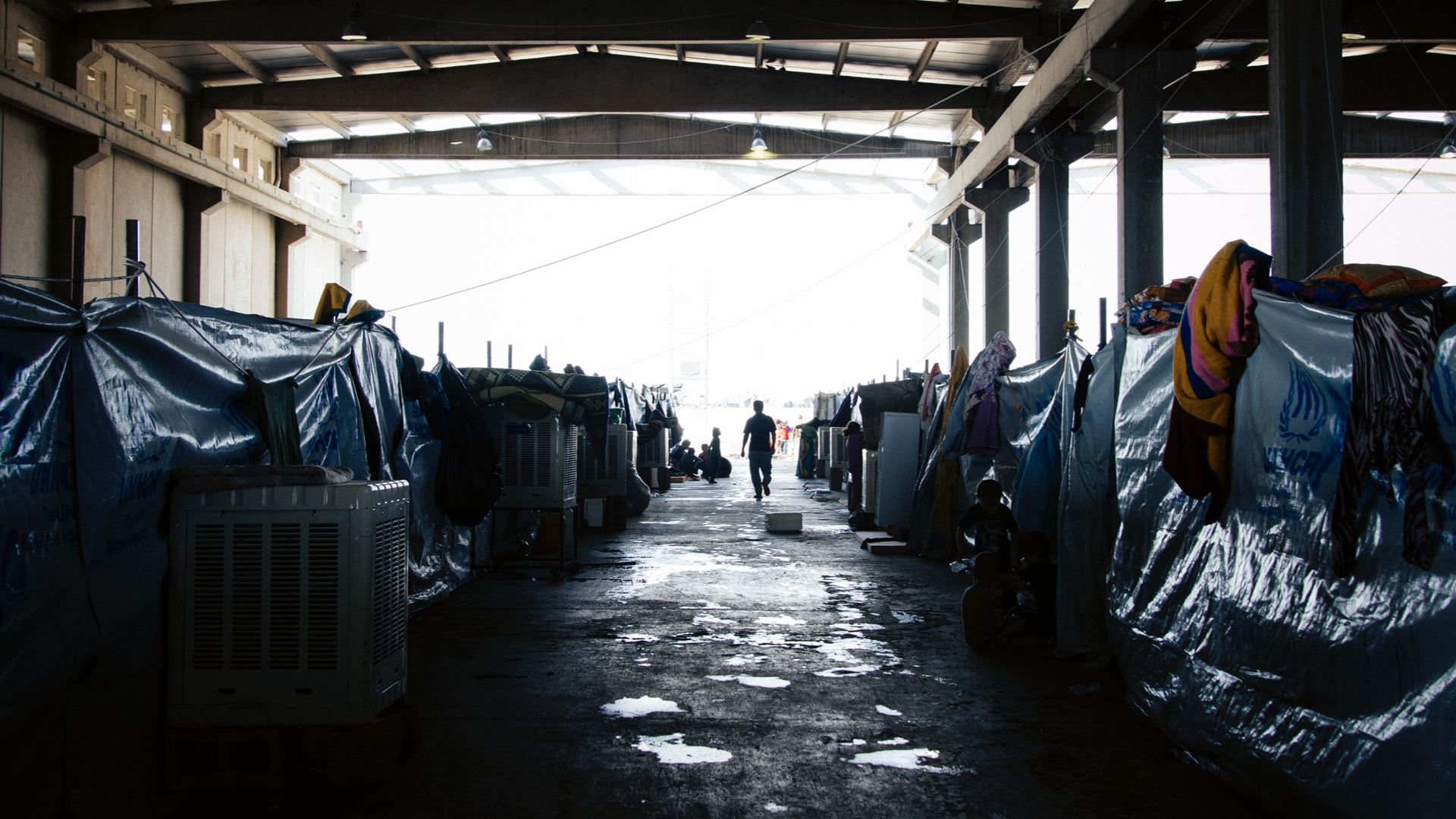
With the new refugees, their displacement was almost immediate, because no one thought the Taliban would take control that fast. So people didn’t prepare. We all then ended up seeing a lot of traumatic images—of people desperate to get out, trying to hold onto aircraft as they took off, and so on.
In a situation like this—where there’s no process, no preparation, where there’s immediate displacement—this increases the chances of more severe mental-health disorders, like depression, anxiety, or, post-traumatic stress. And without help, people will resort to what we call self-treatment—with alcohol or drugs, resulting in addiction, sometimes violence and criminality. Some will be also recruited into terrorism, because, terror movements, they recruit people by filling gaps—and mental health is a huge gap.
Valentine: What does the range of mental-health issues look like? You mention depression, anxiety, post-traumatic stress.
Daod: It’s tricky. People often imagine post-traumatic stress disorder—PTSD—as being the diagnosis you’d see most with refugees. But that’s not really true. PTSD rates are slightly higher with refugees than with the general population—but not that much higher. What we see a lot of is what we call complex trauma or complex PTSD. This isn’t an official diagnosis that you’ll find in the Diagnostic and Statistical Manual of Mental Disorders, the psychiatric Bible we all use, or the International Classification of Diseases.
Because of what happened in Kabul with the departure of the Americans, many of the Afghans seeking asylum now are even more exposed to mental-health issues—not only because they’ve gone through displacement but because it was very immediate. There was no time to process anything.
But it’s what we often see. PTSD is more about a single event like a car accident, or an assault, or something like that. But complex trauma is based in a series of traumatic events that result in a different kind of built-up traumatic stress.
When someone is running from ISIS, or they have to cross the sea, they can end up suffering from complex trauma—but also other disorders, yes, like depression or anxiety, or somatic disorders like extreme focus on pain or exhaustion. These can lead to substance abuse; they can often lead to self-harm—sometimes suicide but mainly non-suicidal self-harm; or they can lead to other harmful ways of dealing with severe psychological states.
Refugees in these circumstances can also suffer from schizophrenia, sometimes OCD [obsessive-compulsive disorder], sometimes PTSD—but post-traumatic disorders among refugees are usually from complex trauma. Which is why it’s often not treated, and why you see a lot of substance abuse and domestic violence come after it.
Valentine: Thinking about the challenge of addressing complex trauma or other mental-health issues at the scale of a refugee camp, how do you approach that?
Daod: One of the most important things to understand, especially about refugees coming from the East, is that their individual well-being is based significantly on a collective well-being.
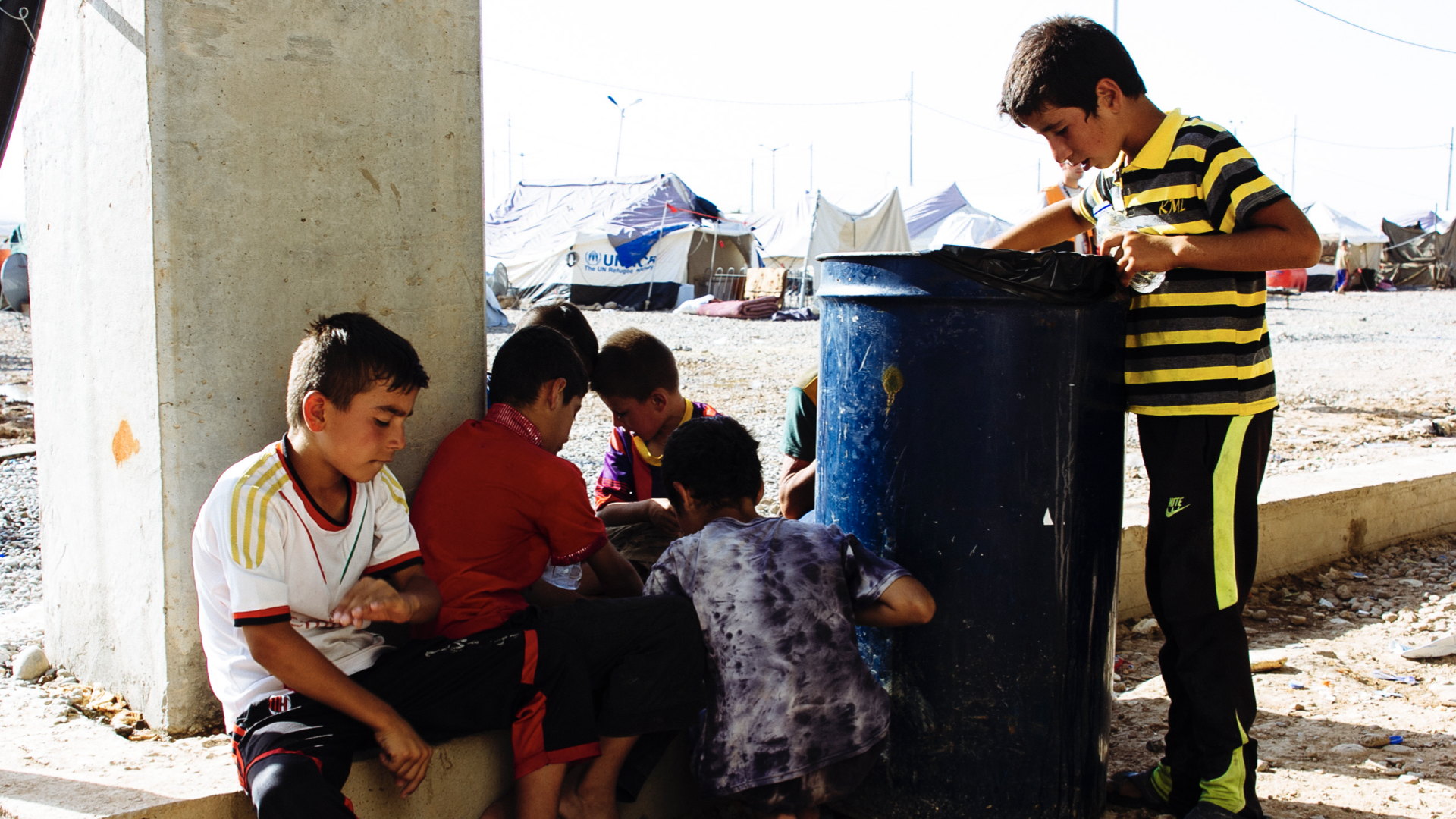
It’s totally different from the kind of well-being that psychotherapy tends to focus on in the West. I’m not saying this is good or bad. It’s different. Going back to Sigmund Freud, or Daniel Winnicott, or the other figures who shaped Western psychology, all of them think about me as an individual self, about how it’s important that I feel good in myself.
In the East, well-being is more collective. For me, for example, in my wedding, I had Like 1,000 people, and there’s maybe another 2,000 who are still to this day very upset that I didn’t invite them. It took me, I think, 10 years until I succeeded in leaving my parents’ house at the age of 30 and moving to Haifa—which is 20 kilometers away. My brother, he just built a house above my parents’. And it’s not because we’re not educated or something. No, I travel all over the world. It’s because I need them. If I have trouble, I just have to pick up the phone and I will have all my 54 cousins next to me. If I come back from Greece, traumatized, and I need money for my crazy project that I’m thinking about, called Humanity Crew, it’s my family that helps me; it’s my community that supports me.
Without help, people will resort to what we call self-treatment—with alcohol or drugs, resulting in addiction, sometimes violence and criminality. Some will be also recruited into terrorism, because, terror movements, they recruit people by filling gaps—and mental health is a huge gap.
When you understand a psychology like this, you understand that the first thing you need to do when you encounter a group of people from the East who’ve been through complex trauma—Palestinians, people from Gaza, Bangladeshis, Afghans—is to recreate community, because it’s the first thing all of these people lose in their experience of trauma. When you are in a situation of forced displacement, when you are running for your life, you will become an animal. Your prefrontal cortex, this very new part of your brain, the part the other animals don’t have that makes you more humane and empathic and capable of reasoning, and planning, and all of these new human things—this shuts down. Your brain is in a state of fight or flight. And when that subsides, and you open your eyes, and you’re Greece, you think, Wait, what? What happened? Where is my tribe? Where is my family? Where are all the people I know?
If you’re a Dutch refugee, or an American refugee, in five minutes you’ll adapt, because this is your life. You’ll manage as an individual. But so many refugees from the East, they can’t; they need the collective. So that’s what we do. We recreate the community. And when we recreate the community, the community starts to heal itself.
Which is necessary for these people—and also necessary when you need to provide mental-health services for a refugee camp of thousands, but you don’t have the resources for all the therapists and other mental-health professionals and trained volunteers you’d otherwise need.
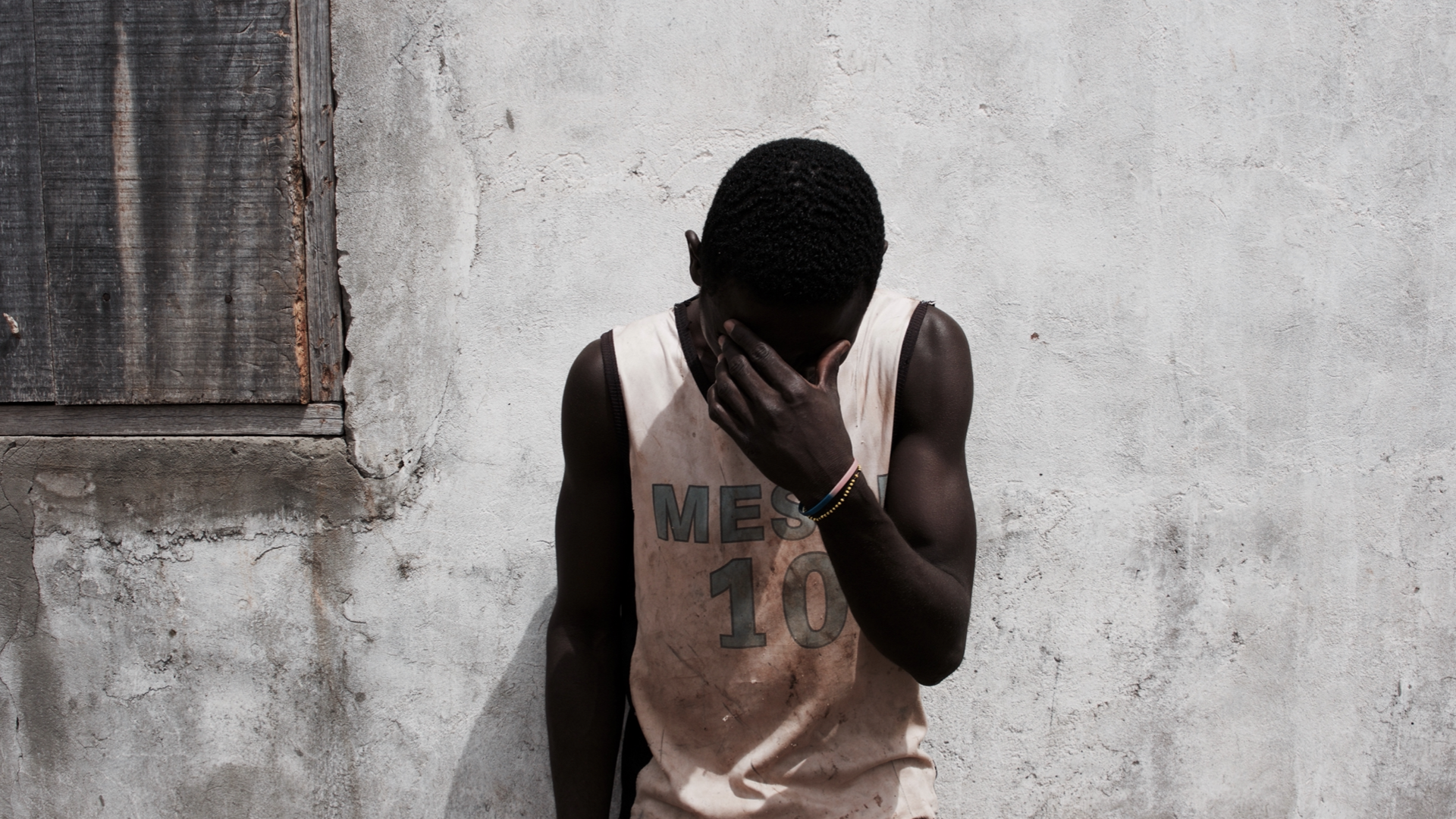
It means you can bring in trained volunteers and, with the supervision of mental-health experts, they can do interventions to activate and reestablish the sense of community inside a camp—and bingo, after a couple of months, you will see that around 80 percent of the population has almost no acute mental-health problems, because they’ve healed themselves together.
We discovered this by making a good mistake—this was at the Diavata refugee camp, in Greece. One of the rules we have for volunteers is that you shouldn’t give anything personal to a refugee. Why? Because it can create a sense of favoritism or discrimination. But one volunteer ended up bringing some Arabic coffee, with a traditional pot and cups, and we saw that this coffee created something. Before this, the people would remind me of the seals I saw in San Francisco once; they would sit outside the camps doing nothing, like seals on the rocks. But when one person started making coffee and inviting others, then they started sitting together, and then they started helping one another solve problems—getting water, or filling out paperwork, or knowing what phone number to call for support on something.
And just the smell of coffee, it gives you a mental image of something close to you. So we started doing this more, bringing people coffee, food, olive oil, thyme—and we saw that this activated good memories; it calmed people down, and they started remembering good things and talking to each other. This is how we helped recreate a sense of community.
One volunteer ended up bringing some Arabic coffee, with a traditional pot and cups, and we saw that this coffee created something. ... when one person started making coffee and inviting others, then they started sitting together, and then they started helping one another solve problems—getting water, or filling out paperwork, or knowing what phone number to call for support on something.
It’s also how we could get closer to people and know them better. Drinking coffee with them, visiting with them, understanding them in this community context—it moves us farther away from being the Western psychologist, sitting in your container waiting for someone to come and tell you that they’re feeling depressed, so you can do psychoanalysis for him. That would be the kind of service typically provided in a camp, which people didn’t want. They would go to psychologists, but they would usually ask for food or shoes or help with paperwork, and the psychologist would have to say, That’s not what I do. But when you help recreate community and get to know people in that context, then you can start working through groups that are meaningful to them. Maybe there’s a small Yazidi minority, maybe there’s a group of single mothers, maybe there’s a group of men who smoke and drink. Everyone is in some kind of group. So we take these groups, and we work with them as groups.
Through that group work, social workers can detect vulnerable cases. They can come to the clinical psychologist, the mental-health coordinator of the camp, and say, This woman from the single-mom group, she’s enjoying the group work, but I think she might need a one-on-one session and some evaluation.
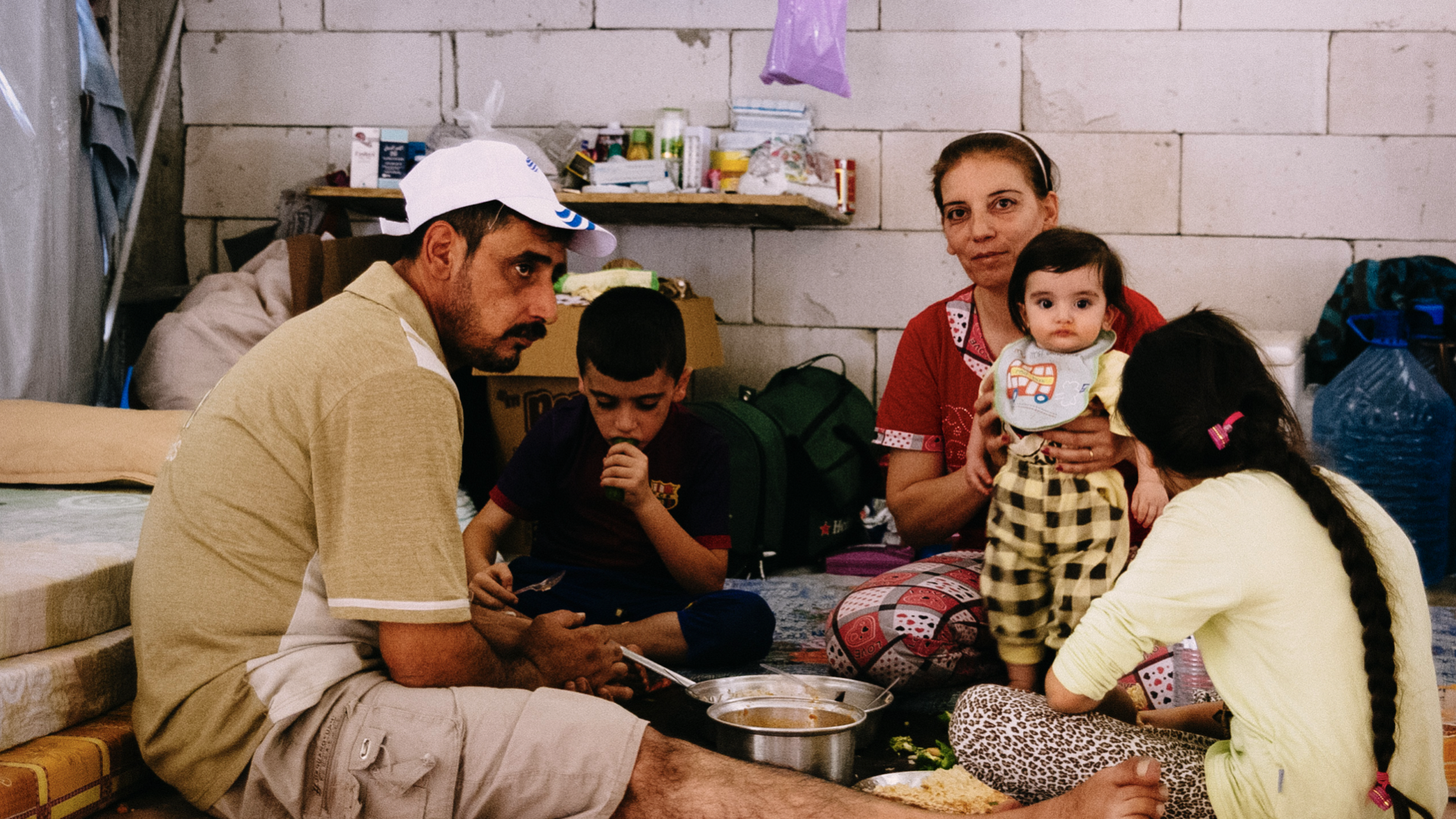
So that woman can get some one-on-one attention, and if everything’s okay with her, she can stick with the group work—but if it’s true that she’s a vulnerable case, then she can go to a third stage of support, with one-on-one sessions. That’s the idea behind how we approach addressing mental health at the scale of a refugee camp. We call it an inverted pyramid. It’s essentially a kind of referral and triage system.
If you enter a camp of 2,000 or 3,000 people, it’s chaotic, nothing’s organized. If you want to detect the problems there and start to provide help, you can’t—you’d need hundreds of psychologists. But if you bring in volunteers—five or ten of them—and train them, so they’re informed about trauma and mental health, along with two or three social workers and a clinical psychologist, then you can make things happen. Then you can start to help people, and you can start to detect the really vulnerable cases. A lot of the time you can’t reach the vulnerable person directly, because he’s sitting in his tent, and he’s destroyed totally. But when you work with the community, the community will bring him to you.
They would go to psychologists, but they would usually ask for food or shoes or help with paperwork, and the psychologist would have to say, That’s not what I do. But when you help recreate community and get to know people in that context, then you can start working through groups that are meaningful to them.
Valentine: You talk about the importance of working with refugees who’ve gone through the trauma of displacement to help them “change their story.” Can you tell us about what that means—and why it’s important?
Daod: One of the things we always try to do is to intervene as closely as we can to the trauma event of displacement. That enables us to shift our focus from treatment to prevention, which is better for everyone. Prevention means stopping a condition from developing that would otherwise require ongoing work to address—which then means significantly less suffering over time and also significantly lower costs in terms of resources. Prevention doesn’t require clinical psychologists with experience in trauma therapy, who are rare; it can be done by trained volunteers and first responders. It’s like, you don’t want the head of a hospital’s surgery department on the scene of every car accident; you want paramedics. We live in a world where there are no paramedics for mental health.
Valentine: So changing their story early—is the meaning of that, that you are able to intervene with certain kinds of cognitive coping skills?
Daod: Yes. In the early stages of trauma, things can still be flexible. There is still a chance that you can change the psychological meaning of an experience in a cognitive way, especially with kids.
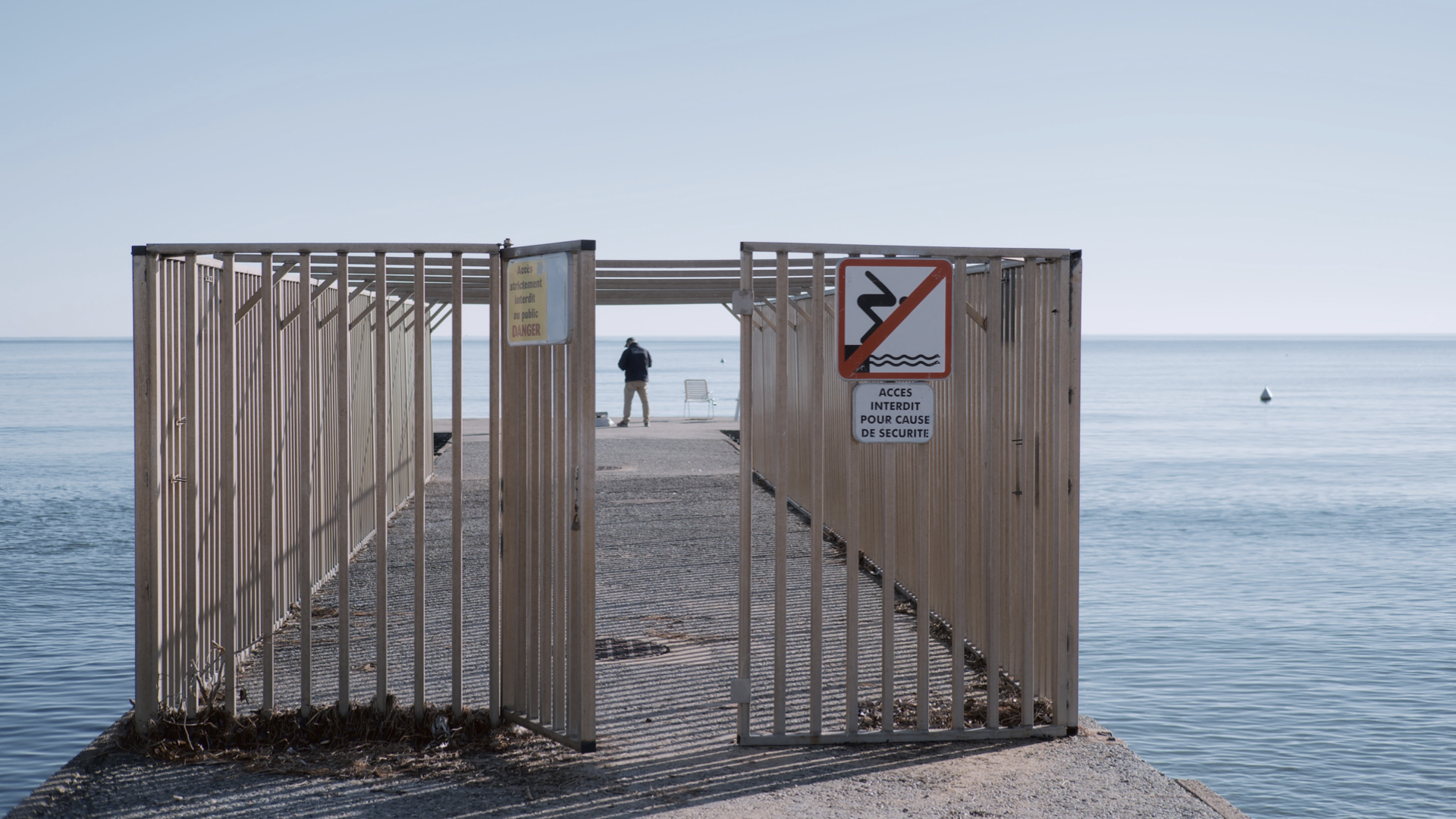
With kids, there is a plasticity to their brain, their cognition is not developed—which is good for us, because it means they often don’t really understand what just happened to them. So they need the story, they need the narrative, to understand it. It’s not like they already have a narrative, and they already understand, and I’m trying to convince them of something different. I’m not saying, Hey, let’s try to see the bright side of Bashar al-Assad bombing your house. You know, the kid will say, Fuck off, I lost all my family. But you can help him look at himself and his experience in certain ways. You can help him see himself as a superhero, as someone who exhibited powerful abilities. This isn’t reframing; it’s framing.
So when I meet a kid who’s just come down from a boat, he’s terrified and crying. He’s come straight from this experience of crossing the sea, scared, confused, surrounded by people who were also terrified and crying. I say, Oh, you are the hero kid who just crossed the sea. I can’t believe you did it. Can you show me your boat, please? I am afraid of boats. You know, only heroes can cross the sea.
With that, he can start to develop a narrative, a resilient narrative, about what just happened to him. If you don’t, he may not establish any narrative, which is the core of post-trauma—fragmentary experiences, fragmentary memories, fragmentary anecdotes from an event that your mind couldn’t handle.
Prevention doesn’t require clinical psychologists with experience in trauma therapy, who are rare; it can be done by trained volunteers and first responders. It’s like, you don’t want the head of a hospital’s surgery department on the scene of every car accident; you want paramedics. We live in a world where there are no paramedics for mental health.
It’s like, you have on your desktop hundreds of folders, and each folder has different pieces of your experience. Maybe after two or three years, someone opens one of them, with an image or a smell, and then you are reactivated in your trauma. But if you open all these folders, and you create one story, and you try to combine good elements into it—because there will be good elements to combine—you can start to develop a resilient narrative and bring that into your identity.
Valentine: When we’re thinking about someone who’s gone through the trauma of displacement and then re-settles in a new country, what’s next for them? Even if they’ve gotten the best possible help along the way, and the best possible outcome in terms of where they end up, there must be challenges. What do the patterns look like in refugees’ longer-term psychological needs?
Daod: The problem is, when mental-health issues become long-term, they become chronic; and when they become chronic, they become really hard to see. You might know someone with a chronic mental-health condition and say, He’s a very aggressive man. Yeah, but he used to be a nice guy. Like, I remember John. In his 20s or 30s, he was a sweet guy. But he changed. He didn’t change. He suffered from complex trauma. He suffered from chronic depression.
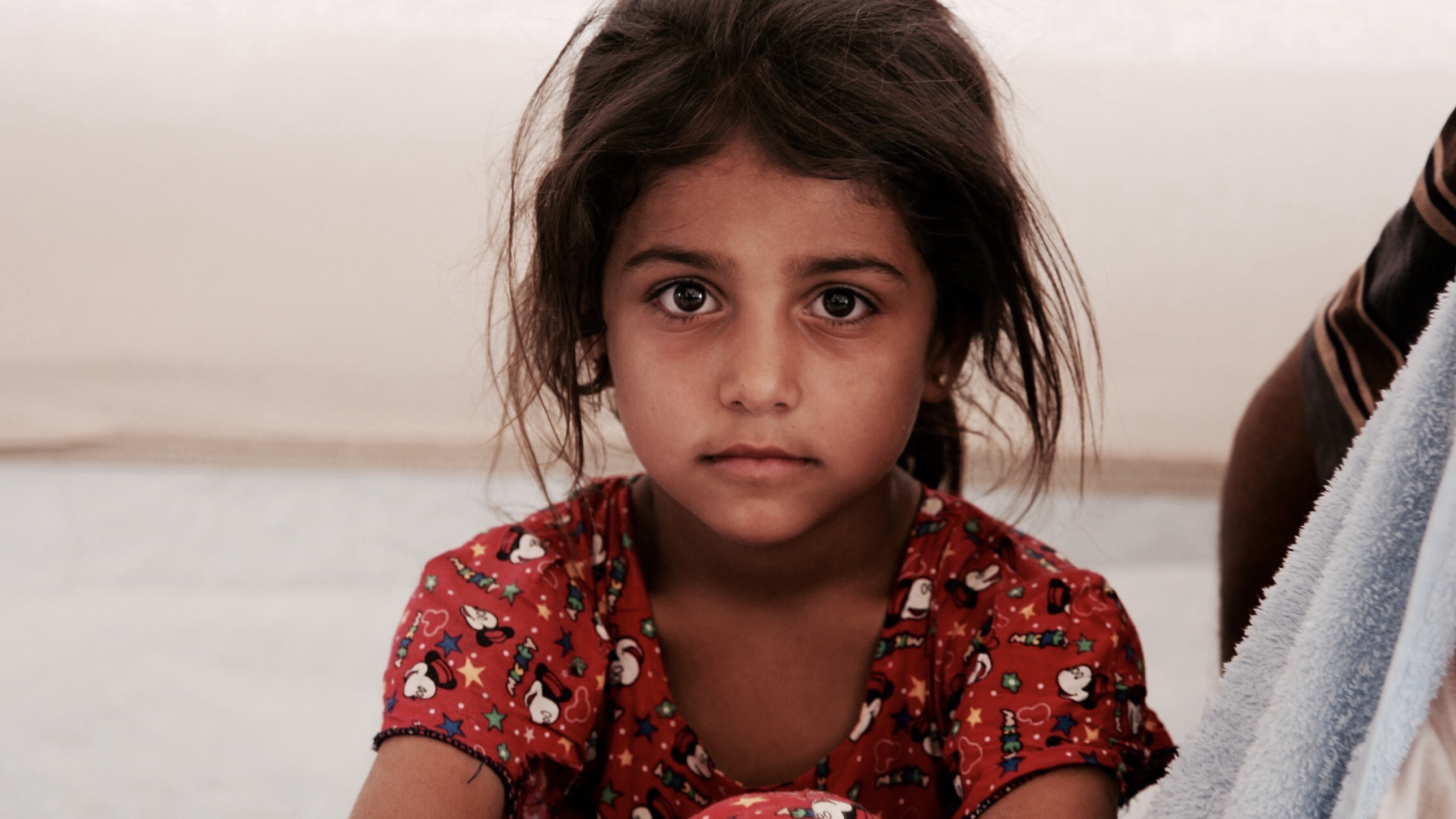
This refugee from Syria, why is he drinking now? It’s the trauma, it’s the depression. Why are maybe 90 percent of the terror attacks in Europe over the last 10 years by asylum seekers or second-generation immigrants? Because they were vulnerable and someone took advantage of that. Almost all of them have drug abuse in their background. Almost all of them suffered from mental-health issues that went neglected for years. No one saw them. These are the people who are easily recruited. And, you know, this is all part of what’s at stake in the mental health of people who’ve gone through forced displacement—or whose families have gone through forced displacement.
If we want to help people resettle well in our countries, we need to give them the right mental-health services as soon as we can. And really, even if we want to kick them out of our countries, we need to give them the right mental-health services as soon as we can. Why? Because no one, no one on Earth, wants to leave their homeland and move to another country. No one. If you are from Aleppo or Damascus, you don’t want to be in Sweden. It’s cold and boring for you. The Jewish people come back to Israel after 6,000 years; the Palestinians have been waiting for 70 years and are still waiting. No one wants to leave their country. We leave because we have to—and that is a traumatic experience. So if we want people to go back, they need to be healthy enough and strong enough mentally so they can do it—and so they can rebuild their country again.

